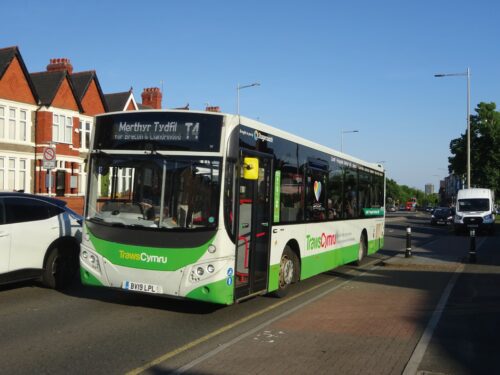
Bus Users UK joined other bodies and interested parties in providing evidence to the Welsh Government on its proposals outlined in the new Bus Services (Wales) Bill 2025
Bus Users UK Director for Wales Barclay Davies joined passenger representatives recently to give evidence on the Bus Services
(Wales) Bill 2025 as the Sennedd heard evidence from passengers and user groups on the proposed new legislation. The panel examined whether the Bill reflects the needs and priorities of current and potential passengers, and how passengers should be involved in shaping the regulations, and the session also included scrutiny of the effectiveness of Transport for Wales’ (TfW) engagement with passengers,
the absence of clear complaint-handling procedures, and whether the needs of older people, disabled people, and those with protected characteristics are sufficiently addressed.
Comparisons were drawn between the Bill for Wales and the UK Bus Services Bill, specifically around disability awareness training and Equality Impact Assessments, and the transition to a franchised model of operation was also covered, with issues of particular concern to Bus Users UK including the implications of removing the duty on local authorities to secure bus services and the continuity and disruption risk to services during transition. Bus Users UK has given a cautious welcome to the Welsh Bus Services Bill, describing it as potentially good news for passengers, with a desire to improve services and put the interests of passengers at the heart of transport planning, but warns that while it also commits to providing services that are accessible, available and affordable to more members of society, there is little mention of consultation with passengers and it contains no assurances around funding.
The organisation says it recognises the description of the Bill by Cabinet Secretary Ken Skates MS as “one of the most important pieces of legislation that we have taken through – to give better options for the whole of our country” but adds that statutory partnerships could deliver most of the aims of the Bill and would give operators a stake in improving services over and above any contractual obligations that would follow under a franchising arrangement.
Looking in more detail, Bus Users UK notes that the Bill contains an objective to improve the reliability of bus services, but that numerous studies and reports have shown that congestion is a major challenge to reliability, yet the Bill contains no plans to tackle congestion nor to introduce bus priority measures to improve service reliability. It has therefore called for an additional objective to tackle the impacts of congestion on bus services in order to provide reliable, predictable journeys for passengers, and has cited the availability of funding to achieve the Bill’s green objectives as a worry.
The organisation has also recommended that a requirement for an operator to have a complaints policy be included, together with
a requirement for operators to nominate an appropriate Alternative Dispute Resolution (ADR) body to which passengers can escalate a complaint in the event of a deadlock.
Community and finance
Bus Users UK also welcomed that the Bill recognises the important role played by community transport services and the exemption for those services it provides, which will enable demand responsive transport to continue alongside, but not as part of, a franchised network, something which it says is crucial to ensure that passengers who are unable to access the main bus service corridors are not excluded from using public transport. However, it has also cautioned that the experience of rail franchising has shown that passengers often expect to see immediate change when in reality it can take several years to deliver noticeable improvements. With a fully franchised network in Wales not expected until 2030, it will be vital, says Bus Users UK, to manage passenger expectations and communicate clearly throughout the process in order to retain the trust and support of the public.
It also adds that the funding model for bus services in Wales requires an overhaul, and that there is no evidence to suggest that franchising will reduce the costs associated with bus operations. If passenger numbers are to increase by any significant margin, bus services must be quicker, more reliable and more accessible and this can only happen by introducing bus priority measures and reducing congestion, it concludes, noting too that the available budget is not clear, nor is there mention of measures and targets for services required in order to determine required budget, nor any value-for-money indicators.

